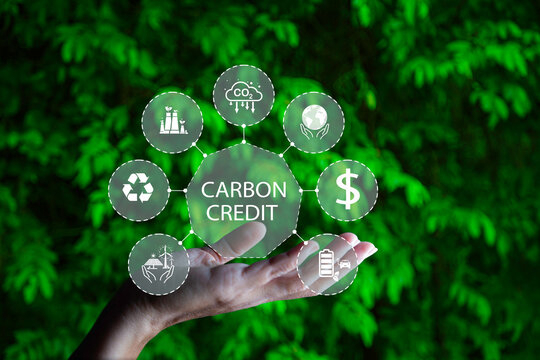Vietnam Pushes for Legal Framework to Unlock Carbon Credit Potential

Hanoi, The Gulf Observer: Despite Vietnam’s significant potential in generating carbon credits through its extensive forest resources, progress remains limited due to the absence of a clear legal framework—particularly regarding payment mechanisms, cost management, and carbon monitoring procedures.
The need for comprehensive regulations has become increasingly urgent to guide forest carbon projects, ensure the transparent issuance of carbon credits, and fairly distribute revenues among the State, forest owners, and other stakeholders.
High Potential, Limited Implementation
According to the Ministry of Agriculture and Environment, Vietnam possesses over 14.87 million hectares of forest, including 10.1 million hectares of natural forest and 4.7 million hectares of planted forest. With a national forest coverage of approximately 42 per cent, the country holds considerable environmental and economic value, making it a strong candidate for carbon credit generation.
This potential includes mangrove forests in Cần Giờ, which could produce 1 to 5 million carbon credits annually, contributing to sustainable development through carbon trading, eco-tourism, and forest product harvesting.
In 2022, the Government issued Decree No. 107/2022/NĐ-CP to pilot the transfer of emission reduction results and manage related financial agreements in the north central region. This pilot, running through December 2026, has introduced a promising revenue stream for forest protection and development. However, several key issues remain unresolved, such as determining eligible beneficiaries and setting payment rates for measurement, reporting, verification, and monitoring activities.
International partners are actively engaging with the Ministry to explore agreements on carbon credit exchanges, and various provinces have received approval to pilot forest carbon services. Yet, many initiatives remain stalled due to the lack of a national legal framework on verified emission reduction transfers and forest carbon credit transactions.
Regulatory Gaps and New Developments
On June 9, 2025, the Government issued Decree No. 119/2025/NĐ-CP to amend Decree No. 06/2022/NĐ-CP, which outlines procedures for carbon project development and appraisal. The updated decree specifies that only organisations may register carbon projects. However, it does not clarify which agencies are authorised to implement forest carbon initiatives—an issue complicated by the 2017 Forestry Law, which recognises a variety of forest ownership types, including State, household, individual, and community-based ownership.
To address these gaps, the Ministry of Agriculture and Environment is currently soliciting public input on a draft decree governing forest-based carbon sequestration services. The proposed decree outlines eligibility requirements, payment mechanisms, financial oversight, and transparency principles to ensure fair benefit-sharing.
Balancing Stakeholder Interests
The draft decree mandates that service providers register and implement forest carbon projects in accordance with legal standards, encompassing emissions reduction activities and full cycles of measurement, reporting, and verification before carbon credits can be issued.
Projects must align with Vietnam’s nationally determined contributions (NDCs) and may operate through direct contracts or the domestic carbon market. Service users must be legally recognised organisations and comply with all contractual and financial obligations under Vietnamese law.
Forest carbon credits, once sold or traded, cannot be re-transferred. The revenue from such trades must be allocated to the forest owners and reinvested in forest development.
Nguyễn Tuấn Quang, Deputy Director of the Department of Climate Change, noted that on January 24, 2025, the Government approved a master plan to establish Vietnam’s carbon market, which will consist of a compliance market (for emissions quota trading) and a voluntary market (for carbon credits). Between 2025 and 2026, the market will focus on three high-emission sectors: electricity, steel, and cement, which collectively contribute about 40 per cent of national emissions.
Ongoing priorities include launching a national carbon credit exchange and developing a registration and issuance system to enable international market participation from 2028.
Toward a Green Future
Vietnam is actively encouraging the development of voluntary carbon credits aligned with Article 6 of the Paris Agreement. The Ministry of Agriculture and Environment, in collaboration with the Ministry of Finance, is drafting a separate decree for international carbon transactions and supporting the establishment of privately operated exchanges such as the ASEAN Carbon Credit Exchange.
Quang emphasized that carbon credits must meet rigorous environmental and legal standards to be officially recognised. The Department of Climate Change will continue to offer guidance and technical assistance to businesses preparing to engage in the pilot market by the end of 2025.
As part of its commitment to a green economy and sustainable growth, Vietnam is prioritising energy transition, emissions reduction, and climate resilience—efforts that will be significantly bolstered by a functioning and well-regulated carbon credit market.


